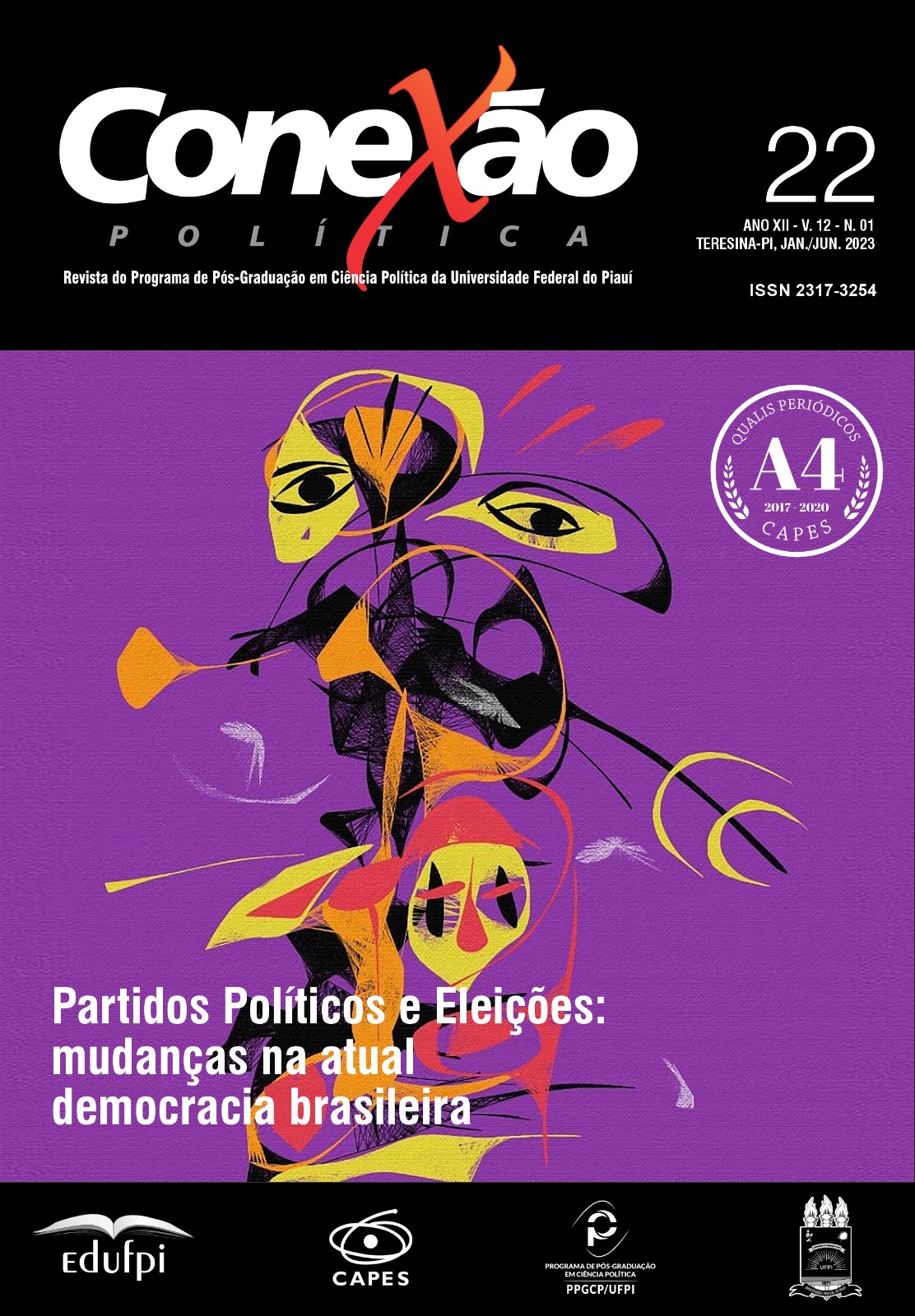Quando dinheiro não é suficiente
efeitos das cotas de financiamento eleitoral para gênero e raça no Brasil
DOI:
https://doi.org/10.26694/2317-3254.rcp.v12i1.5626Palavras-chave:
cotas, eleições municipais, financiamento eleitoral, mulheres, vereadoresResumo
O presente trabalho analisa o financiamento eleitoral nas eleições municipais para vereadores no estado do Piauí no pleito de 2020. Consiste em uma pesquisa quantitativa cujo objetivo principal é analisar o desempenho político a partir dos marcadores sociais de gênero e raça em face das decisões que modificaram o sistema de cotas do Fundo Especial de Financiamento de Campanhas, que assegurou cota de no mínimo 30% para mulheres ou na mesma proporção das candidaturas delas. As análises foram feitas a partir de dados coletados junto ao Tribunal Superior Eleitora. O corpus analítico é composto pelas 18.499 candidaturas distribuídas nas 224 cidades do estado Piauí, nos pleitos de 2016 e 2020, permitindo assim uma análise mais homogênea sobre o fenômeno. Constata-se que, apesar da implementação do sistema de cotas, cuja finalidade era diminuir a disparidade no sistema de representação política, esse aumento nas receitas em face do gênero e da raça nas eleições no estado do Piauí não cumpriu todos os objetivos iniciais, alcançando resultados apenas de forma parcial. Registra-se que as candidatas mulheres receberam mais receita, porém não garantiram melhores desempenhos. Nesse sentido, a busca por um sistema político mais igualitário e inclusivo surge como elemento de observação importante. Pesquisas como esta permitem acompanhar o tema em suas modificações, trazendo para discussões as suas efetividades. Ressalta-se ainda que a pesquisa estuda apenas uma unidade federativa do país e que outras pesquisas em âmbitos regionais e nacionais permitirão comparações e a eclosão de tendências sobre as últimas eleições e eleições futuras.Downloads
Publicado
02-04-2024
Como Citar
LIMA DA SILVA, José Diôgo; CUNHA CARLOMAGNO, Márcio. Quando dinheiro não é suficiente: efeitos das cotas de financiamento eleitoral para gênero e raça no Brasil. Conexão Política, [S. l.], v. 12, n. 1, p. 73–92, 2024. DOI: 10.26694/2317-3254.rcp.v12i1.5626. Disponível em: https://periodicos.ufpi.br/index.php/conexaopolitica/article/view/5626. Acesso em: 4 fev. 2026.




